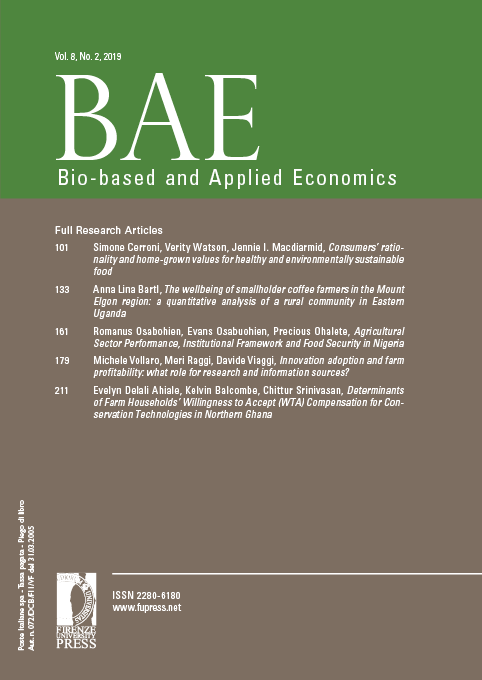Determinants of Farm Households’ Willingness to Accept (WTA) Compensation for Conservation Technologies in Northern Ghana
Published 2020-05-20
Keywords
- Conservation technology/practice,
- interval-data regression model,
- willingness-to-accept,
- Contingent valuation method,
- Payment for Environmental Services
How to Cite
Abstract
This paper examines the determinants of farmers’ willingness-to-accept (WTA) in a hypothetical payment scheme for the adoption of stone and soil bunds in northern Ghana using contingent valuation data from 305 farm households. Bayesian estimation of the interval-data regression model is employed to obtain farmers’ WTA and its determinants. Besides farmer and household characteristics, farm characteristics and socioeconomic and institutional variables such as soil fertility and previous participation in conservation projects increase and decrease willingness-to-accept respectively. The results suggest that costs of soil and water conservation payment schemes may be significantly decreased by careful targeting of households more ready to accept compensation.






